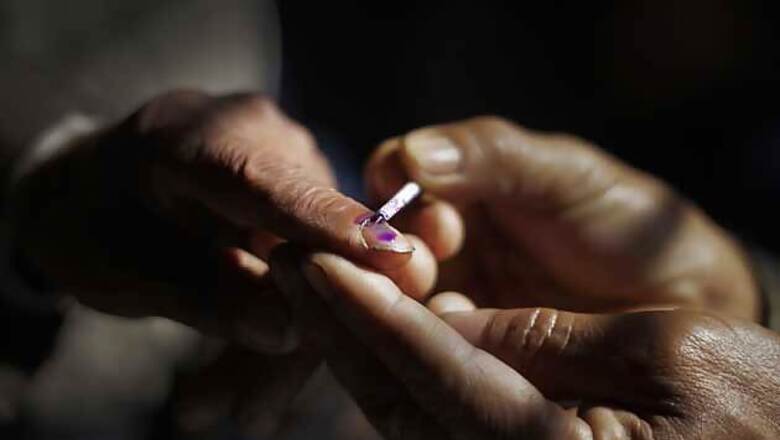
views
New Delhi: As one awaits the declaration of results now sealed in the EVMs by voters of Jharkhand and Jammu & Kashmir, the factors that are likely to shape it and the implications of the possible verdict merit analysis.
Exit and Opinion polls are more or less unanimous on Jharkhand that the BJP is set to form the government in the state. They differ of course on how comfortable would its majority be. Four factors assume significance here. Firstly, the BJP had a clear advantage (like in the Lok Sabha polls and the Maharashtra and Haryana Assembly polls) of being the principal challenger to a discredited and ineffective incumbent government. The BJP has capitalized on the same to the hilt.
Secondly, besides the BJP, and the ruling JMM, the voters had other options including the Congress/RJD/JD (U) alliance and the JVM. The BJP appears to have emerged as the clear front-runner, sidelining the other contenders for power. If the BJP emerges victorious on Tuesday, it will be not just an anti-incumbent choice but a preferred favourite among the contenders.
Thirdly, unlike in Maharashtra and Haryana, in Jharkhand, the BJP had led governments in the state and has a former Chief Minister amongst its ranks. In its campaign, it has preferred to downplay its past in the state and not project a chief ministerial face. It is relevant in the present context to recall that previous BJP led governments in Jharkhand have not covered themselves in glory and have faced serious charges of ineffectiveness and corruption. This brings one to the last point of relevance in this state election.
The trend of a central leadership-driven campaign, which paid rich dividends in both Maharashtra and Haryana, is once again being tried out in Jharkhand. The focus on governance, pitch against corruption, priority to a development agenda, necessitated such a strategy, as the BJP government in Jharkhand in the past, did not had much to write home about in these domains. This Central leadership driven-campaign implies that if the BJP were to come to power, as is being predicted, the Chief Minister will be a hand picked choice of the Prime Minister. This would confirm a trend of BJP chief ministers chosen by the national leadership. Its long term implications are critical. If a state government does not perform, would then the Centre and the national leadership take responsibility? Would the power equations within the federal system decisively shift in favour of the Centre?
The opinion and exit polls on Jammu and Kashmir seem to suggest a split verdict with the PDP sweeping the Valley and the BJP doing well in Jammu. A single party not securing a majority is not new to the politics of this state and was seen in the last two Assembly elections also.
The unhappiness with the incumbent Chief Minister Omar Abdullah and his National Conference led government seems all too apparent. The trouncing it is likely to receive at the polls would be an indication of this vote of no-confidence.
It would be interesting if the PDP forges an alliance with one of the national parties or forms a minority. Given wider implications, the BJP may find it prudent to have some stake in government formation.
The verdict would have two important national implications. The Congress party is likely to witness a marginalization in two more states. In both these states, it was a key player in supporting the incumbent government and/or being part of it. Once again, it is likely to have to remain content to occupying the third -or even fourth position. Since its defeat in the Lok Sabha polls, little effort has been made to revive the party and this result would only further confirm the downslide.
Secondly, the BJP-led government at the Centre would be further buoyed by the likely Jharkhand victory and the second place in J&K. It would of course place a further premium on performance and translation of rhetoric into reality. Further, a central leadership driven and inspired mandate not just at the Centre but in key states has wider ramifications for the nature and structure of politics and electoral competition. Is the excessive dependency on the leadership of a single individual the way to take the federal polity forward? Its long term implications for politics, policy and decision making can be far reaching.
(Dr. Sandeep Shastri is a political analyst and the ProVice Chancellor at Bengaluru headquartered Jain University)




















Comments
0 comment